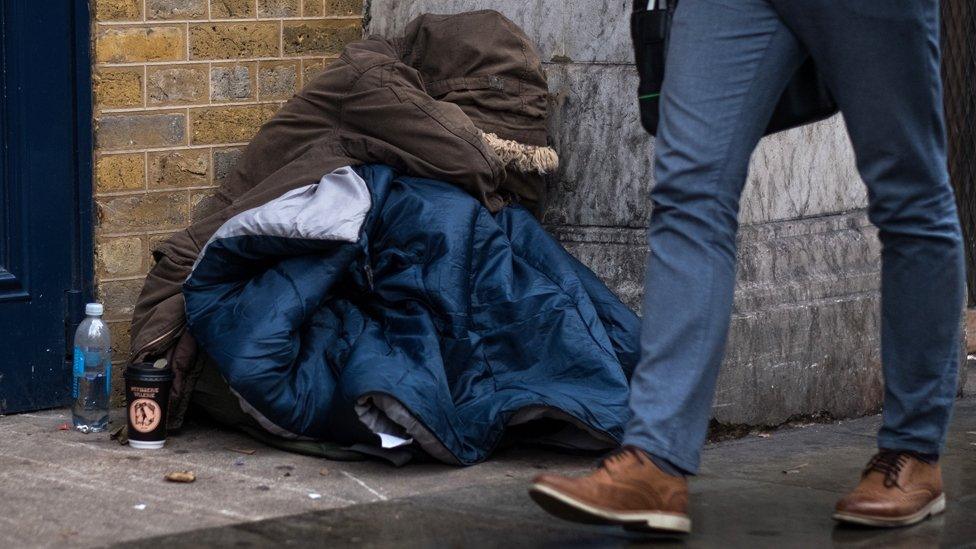Coronavirus and homelessness: 'No one will have to go back'
- Published
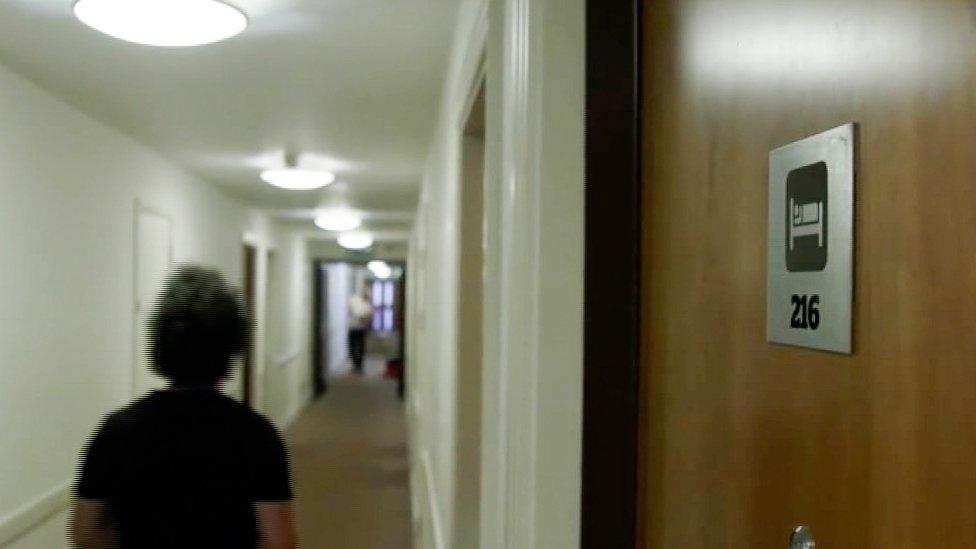
Some people who stayed at the YHA Hostel have moved to more permanent accommodation
Wales' housing minister says she is "absolutely determined" homeless people will not have to go back on to the streets after the coronavirus pandemic.
Councils are being asked to find permanent homes for hundreds of rough sleepers who moved into emergency accommodation during lockdown.
Rooms in hotels, student accommodation and hostels were bought up at the start of the pandemic to provide 800 places.
But Julie James said that was not "OK for the longer term".
Another £20m will now go towards building homes and converting empty properties.
She said it would ensure "that everybody housed stays housed".
"We are absolutely determined that no one will have to go back on to the streets," Ms James added.
She said she was worried about a small number of people who were deemed to have "no recourse to public funds" because of their unsettled immigration applications.

Sara John said she felt more secure at the YHA Hostel in Cardiff
They include asylum seekers who have been given temporary housing under the Welsh Government's health powers to protect them from Covid-19.
Ms James said there were "tens" of them in Wales and she urged the UK government to change its rules so they can continue to get help.
The Home Office said that was "inaccurate."
A spokesman said: "Asylum seekers who would otherwise be destitute are provided with free, fully furnished accommodation, and we continue to provide accommodation and support to those whose claims have been rejected and are unable to return home.
"We will review this situation by the end of June."
In Cardiff, the council has taken over two hotels to temporarily house homeless people.
Officers say only a handful of people have remained out on the streets during the pandemic.
Sara John, 35, is staying at a YHA hostel with her partner after previously staying at other hostels and spending time on the streets.
She said coronavirus was "scary because you don't know if you're going to have the virus or not".
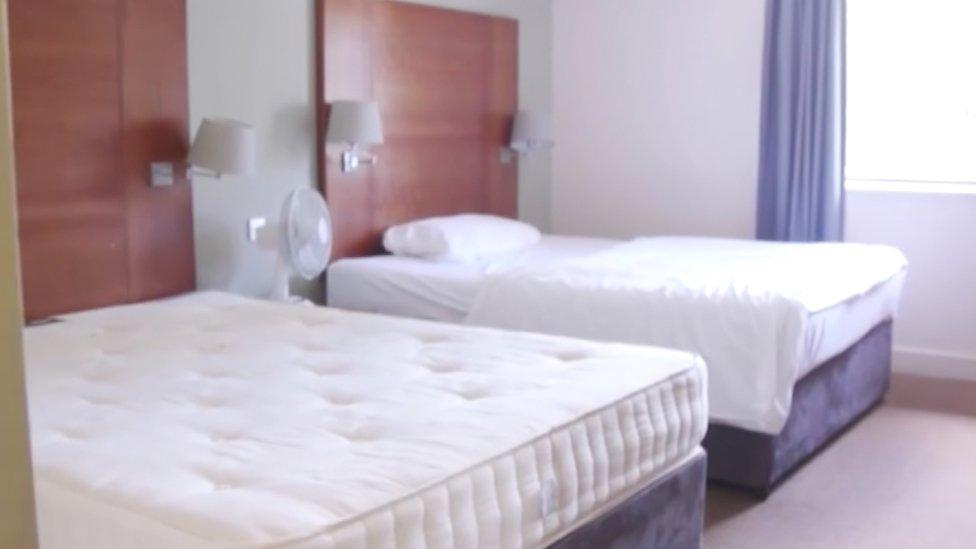
The YHA hostel in Cardiff has 89 beds for homeless people
"There are things you hear but, obviously, I've been out every day and I'm still here," she said.
The YHA hostel, which has 89 beds, makes her feel more secure "because you can lock away and you've got staff here if you need them".
Manager Gareth Edwards said some people had moved on to more permanent accommodation.

THE R NUMBER: What it means and why it matters
LOOK-UP TOOL: How many cases in your area?
EXERCISE: What are the guidelines on getting out?
RECOVERY: How long does it take to get better?
SCHOOLS: When will children be returning?

"We are dealing with 200 and something people at the moment so there's probably going to be a bottleneck of people trying to get into private rented accommodation or supported accommodation in some way," he said.
"I think that's going to be the challenge for us now is to try and identify what people's needs are and where is going to be the best place to place them."
Shelter Cymru director John Puzey said: "We now have a unique opportunity before us to ensure that homeless people currently in temporary accommodation are supported into homes that they can begin to restart their lives from."
Plaid Cymru's housing spokeswoman, Delyth Jewell MS, said eradicating homelessness had always been "a question of political will".
She said: "The fact that the Welsh Government has now made a commitment to eradicate homelessness for good is extremely welcome, although many lives could have been saved had they acted sooner."
Tory MS David Melding said councils should follow a Newport scheme where private landlords were guaranteed six months' rent if they took in homeless tenants.
"It does seem that the Newport scheme has worked very well, and may be a very constructive way forward that uses the resources of the private sector, which are so extensive in providing rental accommodation," he said.
Funding announced by Ms James would help people into stable housing "so they don't fall back and then end up in the streets again", Mr Melding said.
- Published7 June 2020
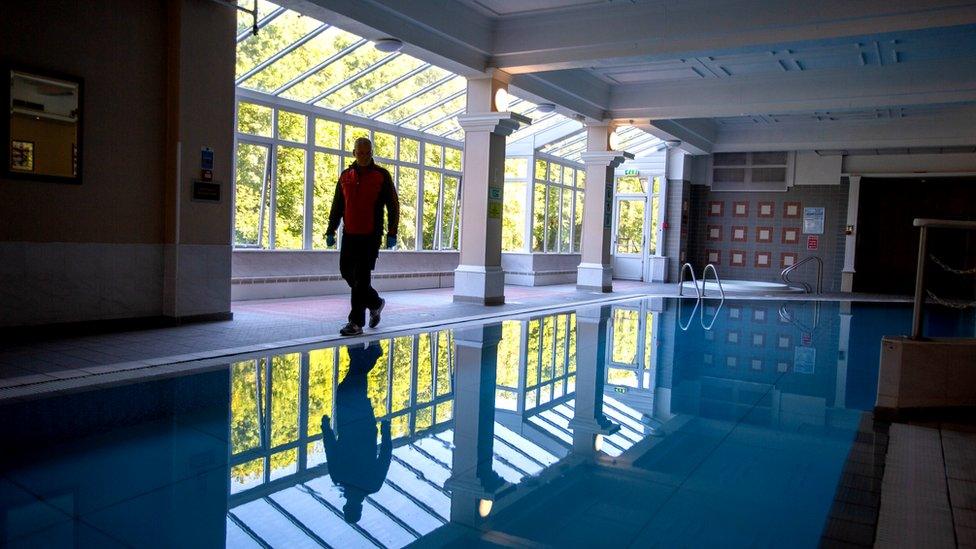
- Published26 May 2020
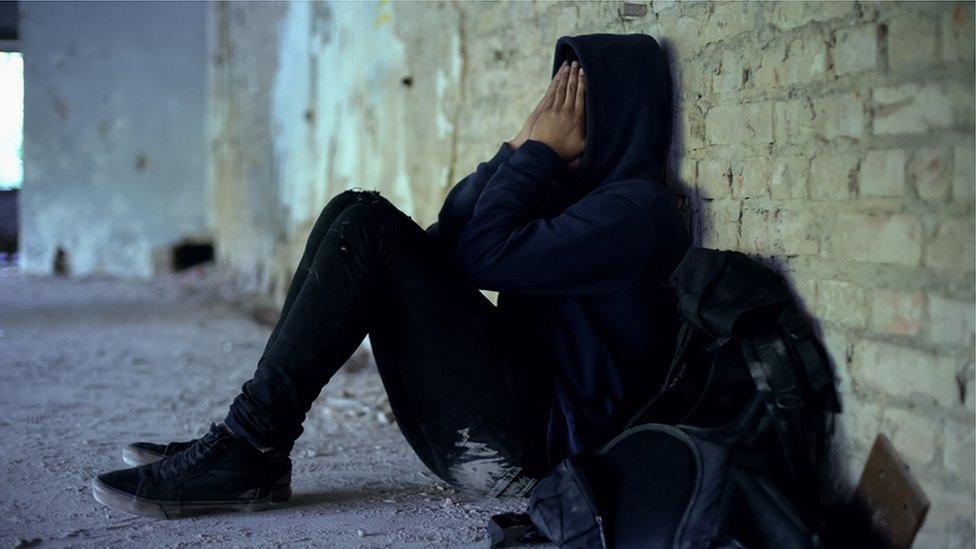
- Published5 June 2020
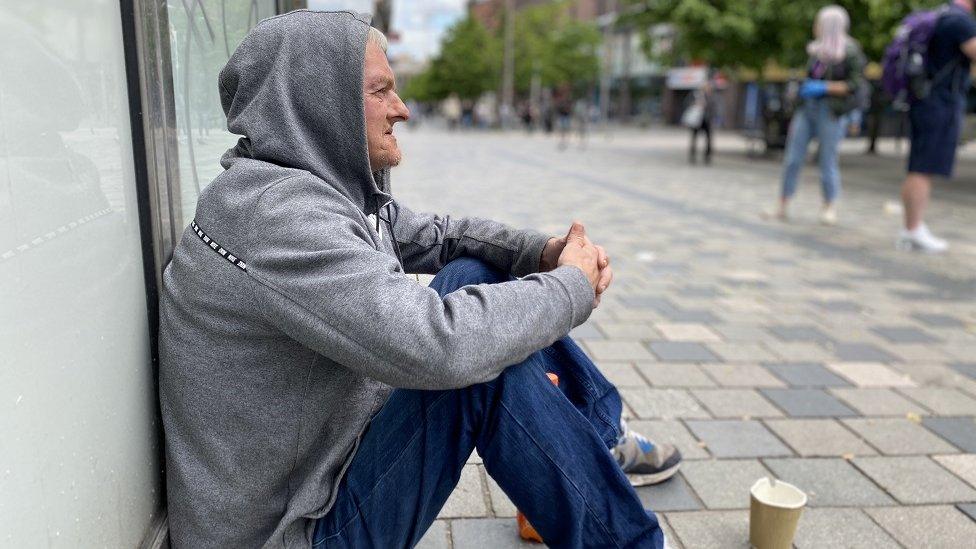
- Published6 January 2020
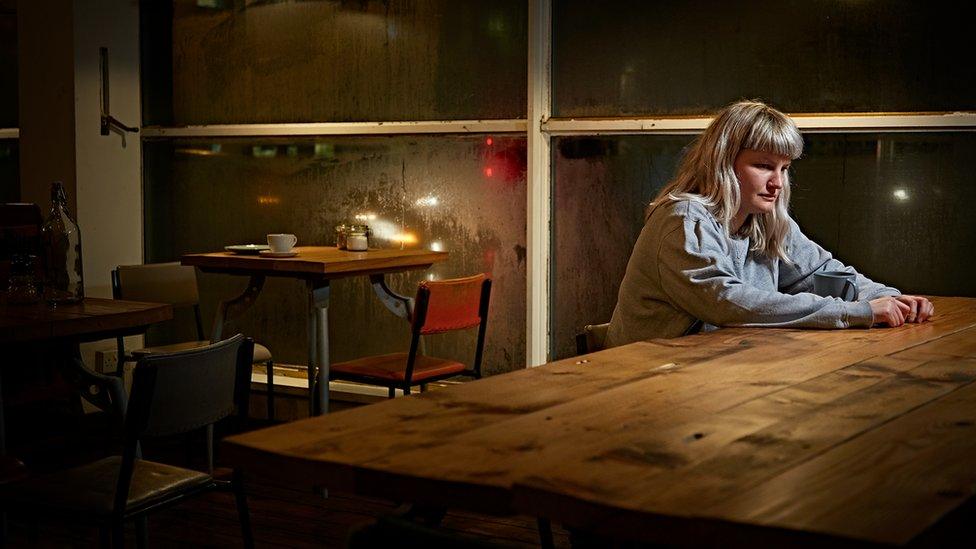
- Published19 December 2019
